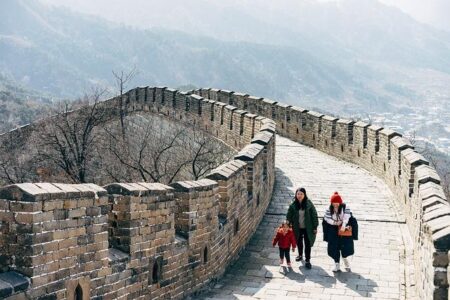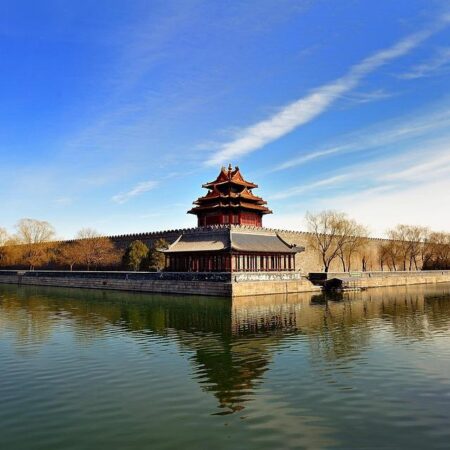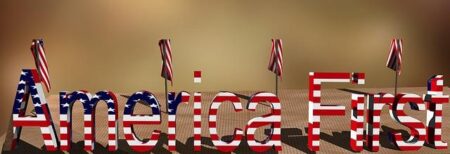Japan is diving deep into the rare earth-rich mud of the Pacific Ocean, aiming to break free from China’s stronghold on the global supply. This daring move strives to secure vital materials that fuel advanced technology and defense systems, even as geopolitical tensions continue to rise
Browsing: Financial Times
Japan’s largest toilet maker is stepping into the spotlight as an unexpected star in the AI revolution, says an activist investor. By seamlessly blending advanced technology with its products, this company is on track to ignite impressive growth, challenge market norms, and transform the industry landscape
China is charging forward with its ambitious “Polar Silk Road” vision, poised to transform Arctic trade and tap into immense resource potential. This daring plan aims to upgrade shipping routes and develop vital infrastructure, underscoring Beijing’s growing strategic emphasis on the Arctic frontier
Russia has once again demanded that Ukraine cede territory to secure peace, intensifying tensions and casting doubt over any swift resolution as crucial negotiations draw near
China’s aluminium smelters are charging ahead with green energy, driving a bold transformation to cut carbon emissions and achieve the nation’s ambitious climate goals. This shift marks a significant milestone in the industry’s path toward a sustainable future
China’s daring investments and dynamic government initiatives in artificial intelligence are swiftly catapulting the nation to the pinnacle of the global AI race, as groundbreaking breakthroughs in AI chips and applications fiercely challenge Western dominance
China’s military has launched a bold attack against a top general, accusing him of deliberately challenging President Xi Jinping’s authority. This explosive claim exposes the fierce power battles quietly raging within the Communist Party, reports the Financial Times’ FirstFT
Argentine Economy Minister Javier Milei is spearheading an exciting drive to attract multinational companies back to Argentina, igniting fresh investment and injecting new energy into the nation’s struggling economy amid ongoing financial challenges
Europe is facing mounting challenges as it strives to break free from its dependence on Russian uranium. With geopolitical tensions disrupting supply chains, the urgency to diversify sources and ramp up domestic production has never been greater
Japan’s 40-year government bond yields have soared beyond 4% for the first time ever, marking a dramatic spike in borrowing costs amid shifting monetary policies. This landmark moment signals a pivotal change in the country’s long-term debt outlook
Beijing is dramatically ramping up funding for its Belt and Road Initiative, channeling unprecedented resources into global projects. This ambitious move aims to secure essential supplies and expand China’s strategic influence worldwide like never before
Rio Tinto and BHP have joined forces to dramatically cut costs in their Australian iron ore operations. This dynamic alliance aims to boost efficiency and strengthen their market position amid the wild swings of commodity prices, the Financial Times reports
Cambodia is boldly broadening its economic partnerships to reduce dependence on China amid escalating US-China trade tensions. This dynamic move aims to attract diverse foreign investments and strengthen the nation’s trade resilience like never before
Japan has enthusiastically embraced its new prime minister, inspired by his hands-on leadership and daring commitments to rejuvenate the economy. His fresh vision ignites a wave of optimism, shattering years of political fatigue and economic challenges, and rekindling the public’s trust
Nadhim Zahawi has made a stunning leap from the Conservative Party to Reform UK, shaking up the political scene like never before. This bold decision underscores growing unrest and deepening dissatisfaction within the traditional party as elections approach
Nordic countries have strongly dismissed former President Trump’s claims about Chinese and Russian naval activity near Greenland, stressing that there is no evidence of any unusual military presence in the region, according to a Financial Times report
Italy and Pirelli are teaming up to take back control of the tyre maker by cutting ties with Chinese investors, fueled by escalating geopolitical tensions. This daring strategy underscores mounting concerns over foreign influence in vital strategic sectors
Russia is facing mounting financial strain as its foreign reserves dwindle and relentless sanctions squeeze its economy tighter, sparking a deepening liquidity crisis, reports the Financial Times
Donald Trump’s latest sanctions on Venezuela’s oil industry dramatically escalate the pressure on China, one of the biggest importers of Venezuelan crude. This bold move threatens China’s energy security, deepening challenges amid rising geopolitical tensions
The Financial Times uncovers that India’s sprawling railway network is far more than a simple mode of transport-it’s an enchanting gateway into the nation’s vibrant cultures, bustling communities, and thriving economy, inviting travelers on an unforgettable adventure deep into the soul of India




















